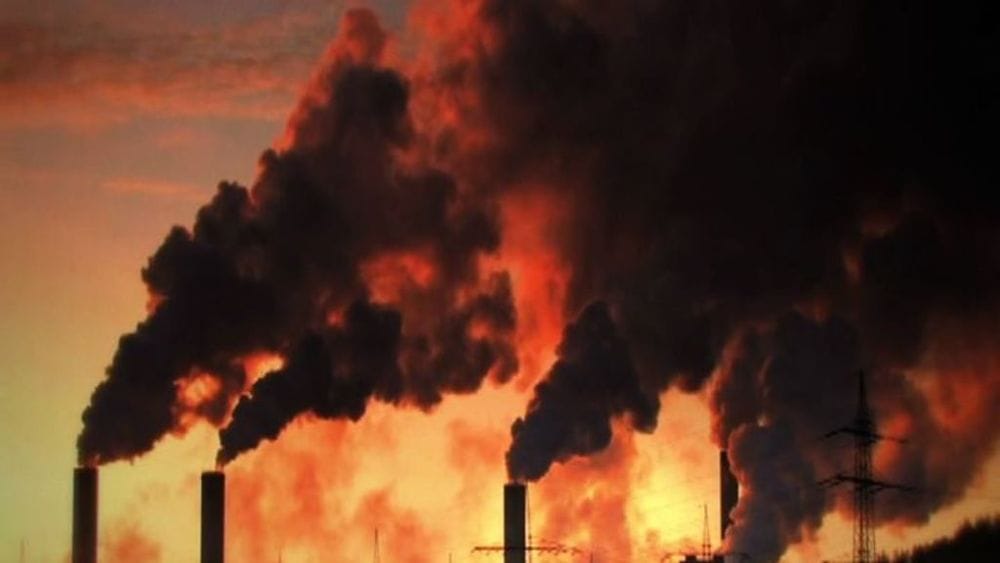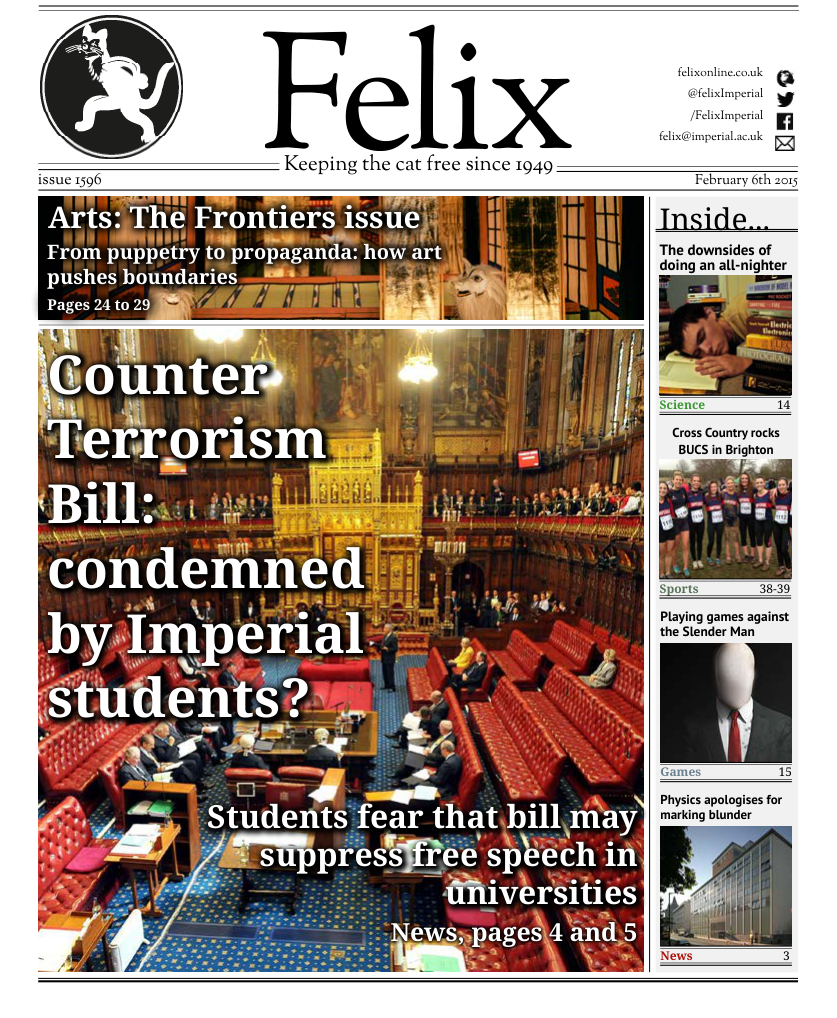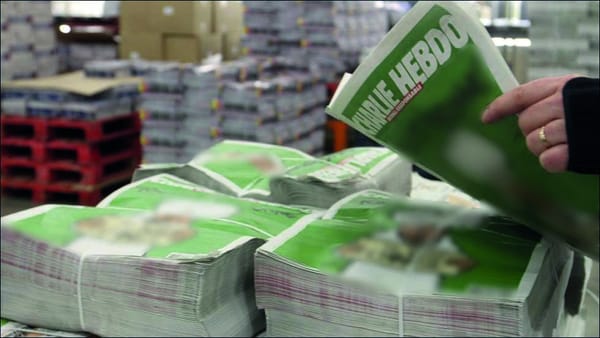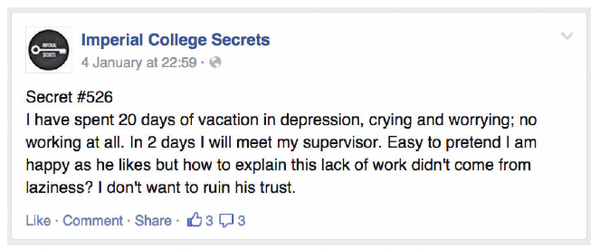Should we freeze investment in fossil fuels?
Phoebe Tickell talks about her involvement with Fossil Free Imperial

The world is waking up to the reality of approaching dangerous temperature rise. And that’s without considering the catastrophic hurricanes, changes to ocean currents, mass extinctions globally, political instability, war, famine, human displacement on a biblical scale, and the growing injustice of global inequality, with ever more power shifting to the 1%.
It seems that climate change action and sustainable awareness can no longer be marginalised as a hippie or ‘eco-warrior’ problem. And in fact, divesting out of the non-sustainable fossil fuel economy is perhaps not a ‘fairy-tale dream’, but something that is a lot more tangible.
Founded in 2011 across just half a dozen US college campuses, Fossil Fuel Divestment is a movement that has gained remarkable traction over a relatively short period of time. Already, scores of educational institutions, philanthropic foundations, religious groups and cities have joined the movement and pledged to go “fossil free”.
The core of the movement is to get institutions to take their investments out of fossil fuels and thus indirectly supporting and directly profiting from the wrecking of our planet. Imperial, just like most other academic institutions, has a huge pot of money at its disposal. Its first priority is to protect those funds and get a good rate of return – to spend on its academic mission, i.e. you.
What we are asking of Imperial is very simple: we want them to freeze any new investment in fossil fuel companies, divest from current directly owned shares and any co-mingled funds that invest in fossil fuel companies within 5 years, and draw up an ethical investment policy and confront their other unethical investments.
Support is growing like wildfire, in people as unlikely as the heirs to one of America’s most famous oil fortunes: the infamous Rockefellers – who announced last September that they would be pulling their philanthropic funds from fossil fuel investments.
“John D Rockefeller, the founder of Standard Oil, moved America out of whale oil and into petroleum,” Stephen Heintz, president of the Rockefeller Brothers Fund, said in a statement. “We are quite convinced that if he were alive today, as an astute businessman looking out to the future, he would be moving out of fossil fuels and investing in clean, renewable energy.”
In July the World Council of Churches, which represents over half a billion Christians worldwide, also decided to pull its investments out of fossil fuel companies. Archbishop Desmond Tutu put it: “People of conscience need to break their ties with corporations financing the injustice of climate change”. Even Leonardo DiCaprio is on board.
The endowment fund is comprised of hundreds of million of pounds, some of which are directly invested in oil, coal and gas. Imperial has no ethical investment policy.
In this year’s University Green League we came 112th in the UK after scoring 0% for ethical investment. Oxford, St. Andrews, and UCL have explicit Responsible Investment policies. Among the Ivy League universities in the USA, Harvard, Brown, and Columbia have an explicit commitment to sustainable and responsible investing.
If we were to divest, we would be joining Glasgow University, as well as eighteen US universities, including Stanford, which have already committed to divest from the fossil fuel industry. In the UK, student unions such as at King’s and UCL are demanding that their institutions take similar action. SOAS, at the University of London, has agreed to a temporary freeze on investment in advance of a decision on full divestment to be taken later this year.
Decisions are also imminent from the University of Edinburgh, which conducted a consultation with staff and students that was overwhelmingly in support of divestment.
Oxford University and its colleges, which have an endowment wealth of £3.8bn, is currently conducting a staff-only consultation, after almost 2,000 students and academics joined a campaign calling for divestment.
Andrew Taylor of the People and Planet Network, which has launched over fifty ‘Fossil Free’ campaigns, said: “Divestment now has a firm foothold in the UK. Student and academic pressure to get out of fossil fuels is building across the sector.
“It’s time to stop profiting from wrecking the climate, whether you’re an institution with lots of money like Oxford or Edinburgh, or a world leader in climate research such as the University of East Anglia.” In our case at Imperial, we are both.
There are many arguments that spring to mind against divestment. Why pull out our money, when it will be immediately be replaced by a new investment? Why bother, when university level endowment funds are tiny compared to the investments of huge financial institutions?
One only needs to open a newspaper and see the latest figures describing the destruction of natural resources and the chaos caused by the growing climate destabilisation. And climate change is making inequality worse. While climate injustice is a relatively new concept, its evidence abounds.
As extreme weather becomes more frequent and severe, people on low incomes are the ones who will feel the impacts first and worst every single time. And it is we in developed countries, with our resource obsessed economy and decades of collective denial that have landed the world in this position.
Financially, the transferral of investments is sound. Oil investments may give a good return, but so do many other, ethical sources of return. Just because our money lies in one place, as a result of decisions made years ago, does not mean it has to stay there forever. Times change, evidence emerges, and a responsible and clued up society reacts.
Oil, gas and coal companies play an active role in swaying politicians in the face of hard science. Just a couple of weeks ago, 62 Senators voted to approve the construction of the Keystone XL oil pipeline system, which would translate into releasing as much as 1.37 billion metric tons of greenhouse gases into the atmosphere.
It has now been shown that these very Senators took as much as $31 million in the form of financial support from Big Oil companies. This is not in the interest of the people, nor is it representative of public opinion. In fact, a recent poll found that an overwhelming majority of the American public, including half of Republicans, support government action to curb global warming.
You can say that we are just one institution, which in the grand scheme of investments, is not much. If I were writing this article 3 years ago, then yes, I would agree with you. One, isolated boycott against fossil fuel companies could be likened to a tree falling in an empty forest. But our move is not isolated, and many people are listening.
It is a privilege to be able to do science every day. It is a privilege to understand, more than many others across the world, the science behind what is happening to the oceans, rainforests, atmosphere, people’s health, and the future of the coming generations. But it is what we do with the knowledge that will make all the difference.
If you agree with us, consider signing our petition. Your name will join around 800 others that we will be showing as a symbol of support when presenting our case to the University fund managers. No matter what you do, make it not be inaction. In the words of famous US environmentalist Edward Abbey, sentiment without action is the ruin of the soul.









